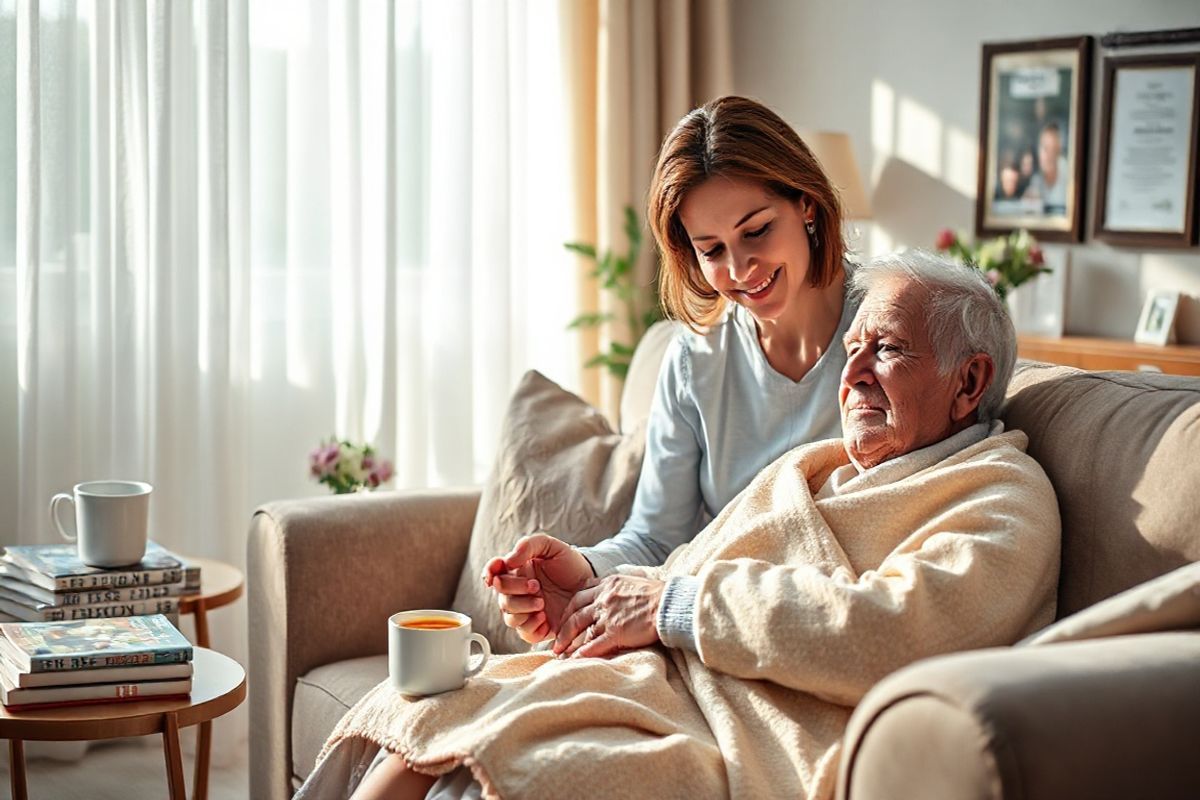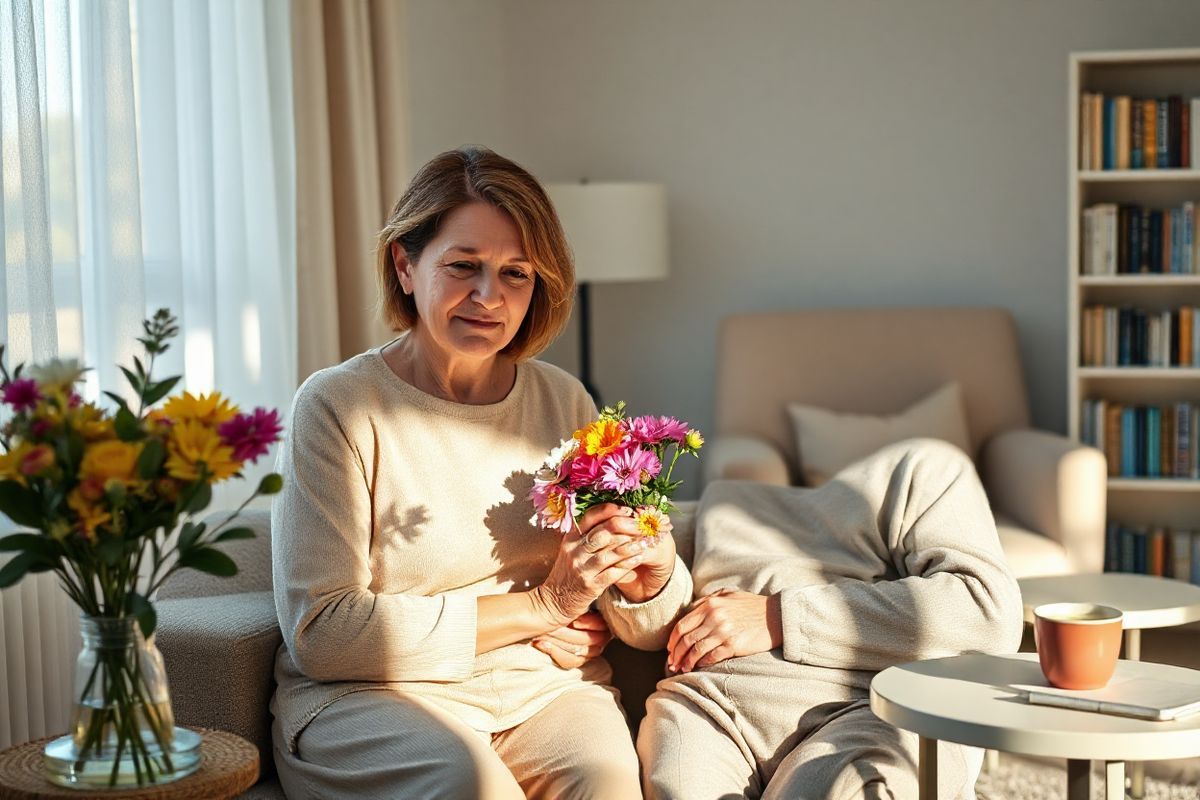Table of Contents
Understanding the Role of Caregiver Support in Cancer Care

The role of caregivers is crucial in the cancer treatment journey, as they provide not only physical assistance but also emotional and psychological support. Research indicates that informal caregivers, who are often family members or friends, are responsible for a significant portion of cancer care, including managing treatment schedules, administering medications, and providing emotional reassurance (Cancer caregiving, 2023). This support can greatly impact the patient’s overall experience and may also affect their health outcomes.
The National cancer Institute (NCI) recognizes the increasing burden on informal cancer caregivers, especially as the number of cancer survivors continues to grow. Caregivers often face their own physical and emotional challenges, which can lead to what is termed “caregiver fatigue” or “burnout” (Cancer Caregiving, 2023). This underscores the need for caregiver support programs that can help alleviate some of the stress associated with caregiving.
Essential Strategies for Effective Cancer Caregiving

Communication and Coordination
Effective communication between caregivers, patients, and healthcare providers is vital. Caregivers should actively participate in medical appointments, asking questions and clarifying treatment plans. Maintaining detailed notes about appointments and treatment regimens can help caregivers manage care more effectively. Cancer Care offers resources for caregivers to facilitate communication, including tips on how to prepare for medical visits (Cancer Caregiver Resources | Caregiver Guide, 2023).
Managing Daily Care Tasks
Cancer caregiving often involves numerous daily tasks, such as preparing meals, managing medications, and providing transportation to medical appointments. It’s important for caregivers to organize these responsibilities effectively. Utilizing tools like My Cancer Circle can help caregivers coordinate support from friends and family by allowing them to sign up for specific tasks (Cancer Caregiving, 2023).
Self-Care for Caregivers
Caregivers must prioritize their own well-being to provide effective support. This includes taking time for self-care, seeking emotional support, and recognizing when they need a break. Research has shown that caregivers who take time for themselves are better equipped to provide care to their loved ones (Cancer Caregiver Resources | Caregiver Guide, 2023).
Seeking Professional Help
Caregivers should not hesitate to seek professional help when needed. Oncology social workers can provide counseling and support specifically tailored to the needs of caregivers (Caregivers of Cancer Patients, 2023). Participating in support groups can also connect caregivers with others facing similar challenges, offering a space to share experiences and coping strategies.
Emotional and Psychological Well-being: Supporting the Caregiver

Caring for a loved one with cancer can evoke a range of emotions, including anxiety, depression, and stress. These feelings are natural but can be overwhelming. Recognizing and addressing these emotions is critical for caregivers. Here are several strategies to support emotional well-being:
Acknowledge Your Feelings
Caregivers should allow themselves to feel their emotions without guilt. It is essential to express feelings of frustration, sadness, or even relief when moments of respite occur. Open discussions with trusted friends or professional counselors can provide outlets for these emotions.
Practice Mindfulness and Stress Reduction Techniques
Incorporating mindfulness practices, such as meditation or yoga, can help caregivers manage stress. Simple breathing exercises or short walks can help ground caregivers and provide moments of peace amidst the chaos of caregiving.
Engage in Supportive Relationships
Building a network of support is crucial. Caregivers should reach out to friends, family, and support groups. Engaging in conversations with others who understand the challenges of caregiving can provide both emotional validation and practical advice.
Resources and Tools for Cancer Caregivers
There are numerous resources available to assist caregivers in their journey. Here are some valuable tools and organizations:
-
cancercare: Offers free professional support services, including counseling and support groups tailored for caregivers. Their resources include helpful publications that address caregiver needs (Cancer Caregiver Resources | Caregiver Guide, 2023).
-
National Cancer Institute (NCI): Provides a wealth of information about cancer types, treatment options, and support resources for both patients and caregivers (Cancer Caregiving, 2023).
-
My Cancer Circle: An online tool that helps caregivers organize support from family and friends, making it easier to coordinate care tasks.
-
Local Area Agencies on Aging: Can provide referrals and resources for caregivers, including respite care options and support services (Get paid as a caregiver for a family member, 2023).
-
Support Groups: Connecting with others through support groups, whether online or in-person, can provide emotional support and practical advice (Cancer Caregiver Resources | Caregiver Guide, 2023).
Building a Support Network: Engaging Family and Friends in Caregiving
Creating a supportive network is essential for caregivers. Engaging family and friends can help alleviate some of the burdens associated with caregiving.
Communicate Needs Clearly
Caregivers should communicate their needs to family and friends. This can include asking for help with specific tasks, such as grocery shopping, cooking, or providing transportation. Clear communication can help others understand how they can best support the caregiver and the patient.
Utilize Technology
Using technology to coordinate support can be particularly helpful. Tools like CaringBridge allow caregivers to share updates and organize support from a distance, ensuring everyone is informed and involved (Cancer Caregiving, 2023).
Encourage Participation in Care
Encouraging family members to participate in caregiving tasks can help distribute the workload more evenly. This not only relieves the primary caregiver but also allows other family members to bond with the patient.
FAQ Section
Q: How can I manage my stress as a caregiver?
A: Managing stress involves prioritizing self-care, seeking support from friends and family, and using relaxation techniques. Engaging in hobbies or activities you enjoy can also help.
Q: What resources are available for financial assistance for caregivers?
A: Various organizations offer financial assistance, including CancerCare, which provides limited funding for cancer-related expenses. It’s also advisable to check with local government programs for additional support.
Q: How do I find a support group for caregivers?
A: You can find support groups through organizations like CancerCare, local hospitals, or community centers. Online platforms also host virtual support groups.
Q: What should I do if I feel overwhelmed as a caregiver?
A: If you feel overwhelmed, it’s essential to reach out for help. Consider talking to a professional counselor or joining a support group to share your experiences and feelings.
Q: How can I best support a loved one who is undergoing cancer treatment?
A: Supporting a loved one involves being present, listening to their concerns, helping with day-to-day tasks, and encouraging them to express their feelings and needs.
Conclusion
Caring for a loved one with cancer can be an arduous journey filled with emotional and physical challenges. However, understanding the role of caregiver support, implementing effective caregiving strategies, and building a strong support network can significantly enhance the experience for both caregivers and patients. By prioritizing self-care and utilizing available resources, caregivers can navigate this journey with greater resilience and compassion.
References
- Cancer Caregiving. (2023). Retrieved from https://www.cancercare.org/tagged/caregiving
- Cancer Caregiver Resources | Caregiver Guide. (2023). Retrieved from https://www.cancer.org/cancer/caregivers/caregiver-resource-guide.html
- Get paid as a caregiver for a family member. (2023). Retrieved from https://www.usa.gov/disability-caregiver
- Insights About Dyadic Cancer Survivorship Interventions for Black Women and Their Caregivers: A Rapid Qualitative Analysis of Collaborator Perspectives. (2023). Retrieved from https://pubmed.ncbi.nlm.nih.gov/11645766/
- Cancer prognosis information-seeking among survivors and caregivers: findings from the National Cancer Institute’s Cancer Information Service. (2023). Retrieved from https://doi.org/10.1007/s00520-024-09089-8
- Caregivers of Cancer Patients. (2023). Retrieved from https://www.cancer.gov/about-cancer/coping/caregiver-support
- Family Caregiver Support. (2023). Retrieved from https://aging.sc.gov/programs-initiatives/family-caregiver-support
- Analysis of the health effects of multiple social networks on the older adult: the substitution role of labor participation. (2024). Retrieved from https://doi.org/10.3389/fpubh.2024.1501597









